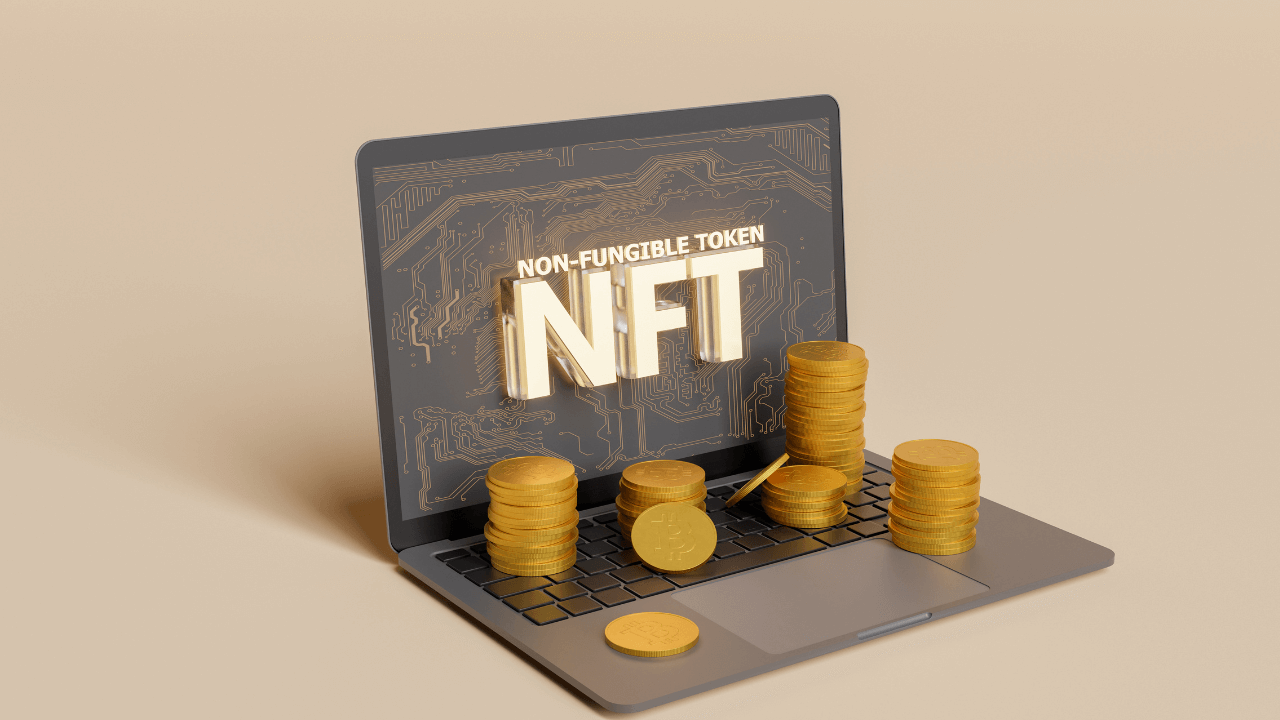Language:
The Ultimate Blueprint for Structuring Your NFT Business for Success

The dynamic world of Non-Fungible Tokens (NFTs) is capturing the imagination of entrepreneurs and investors alike, offering unprecedented opportunities for innovation and profit. NFTs, unique digital assets verified using blockchain technology, are transforming how we perceive ownership and value in the digital age.
For those looking to venture into this exciting market, structuring your NFT business effectively is crucial for long-term success. In this guide, we will delve into the essentials of NFTs and outline the optimal business structures that can help your NFT project thrive.
Ready to turn your vision into a reality?
Set up your NFT business with doola from anywhere in the world, open your U.S. bank account, and manage compliance effortlessly through our suite of services.
Understanding NFTs

What Are NFTs?
Non-fungible tokens (NFTs) are unique digital assets representing ownership or proof of authenticity of a specific item or content, typically stored on a blockchain. Unlike cryptocurrencies such as Bitcoin or Ethereum, which are fungible and can be exchanged one-to-one, NFTs are one-of-a-kind or part of a limited series.
This uniqueness of NFTs allows the owners to affirm the ownership of digital art, music, videos, virtual real estate, and even collectible items within video games.
The blockchain technology underpinning NFTs provides a transparent and secure way to track the provenance and ownership of these digital assets. As a result, NFTs have opened up new revenue streams for creators and innovative investment opportunities for collectors and traders.
How NFTs Work
NFTs operate on blockchain technology, most commonly on the Ethereum network, though other blockchains like Binance Smart Chain and Flow are also used.
Each NFT contains distinct information in the form of metadata, which includes details such as the creator’s identity, ownership history, and any associated digital files. When an NFT is created or “minted,” this information is recorded on the blockchain, providing an immutable and transparent ledger.
To interact with NFTs, users need a digital wallet that supports the specific blockchain the NFT is on. Once minted, NFTs can be bought, sold, or traded on various online marketplaces such as OpenSea, Rarible, or Foundation.
Smart contracts, self-executing contracts with the terms directly written into code, facilitate these transactions and ensure that creators often receive a percentage of resales.
This decentralized process ensures security, transparency, and trust in the ownership and transfer of NFTs.
Popular NFT Use Cases
NFTs have found applications in various fields, each leveraging blockchain technology’s unique properties.
Digital art is the most well-known use case, with artists creating and selling their works directly to collectors, bypassing traditional intermediaries like galleries and auction houses.
Music is another growing area where musicians can distribute tracks and albums as NFTs, offering fans unique ownership experiences and special perks.
In the gaming industry, NFTs represent in-game assets such as weapons, skins, and virtual real estate, which players can buy, sell, or trade. This provides gamers with actual ownership and the ability to monetize their gameplay.
Another exciting use case is virtual worlds, where users can purchase parcels of virtual land and develop them as they see fit.
Additionally, NFTs are being explored for ticketing, ensuring authenticity, and reducing fraud for events and experiences. These diverse applications highlight the versatility and potential of NFTs in transforming how we interact with digital and physical assets.
Choosing the Right Business Structure
Sole Proprietorship vs. LLC
When setting up your NFT business, it is crucial to select the business structure that best suits your requirements. A sole proprietorship is the simplest business structure, requiring minimal paperwork and offering complete control to the owner.
However, it does not provide liability protection, meaning your assets could be at risk if the business faces legal issues or debt.
On the other hand, an LLC offers significant advantages regarding liability protection. This structure separates personal and business assets, safeguarding personal wealth from business liabilities.
While setting up an LLC involves more paperwork and higher costs than a sole proprietorship, it provides greater credibility and potential tax benefits.
Additionally, an LLC can have multiple members, making it a more versatile option if you plan to collaborate with partners.
Choosing between these structures depends on your needs, goals, and willingness to manage the associated administrative responsibilities.
Benefits of Incorporating
Incorporating your NFT business offers several key benefits that can provide a solid foundation for growth and stability.
One of the primary advantages is liability protection; incorporation creates a legal distinction between the business and its owners, shielding personal assets from business-related debts and legal actions.
This is particularly important in the volatile NFT market, where unforeseen challenges can arise. Incorporation enhances credibility and trustworthiness, which can be crucial when attracting investors, partners, and customers.
It signals a level of professionalism and commitment to long-term success. Additionally, corporations often have easier access to funding through venture capital, loans, or public offerings.
Tax benefits are another significant advantage. Depending on the structure (such as forming an S-Corporation or C-Corporation), businesses may benefit from lower tax rates and deductions not available to sole proprietorships or partnerships.
These benefits make incorporation an attractive option for entrepreneurs aiming to scale their NFT ventures effectively.
Legal Considerations
Addressing various legal considerations when structuring your NFT business is essential to ensure compliance and protect your interests. Intellectual property (I.P.) rights are a primary concern, especially since NFTs involve digital content like art or music.
Ensure you have clear agreements regarding the ownership and licensing of I.P. to avoid potential disputes.
Another critical area is securities regulation, mainly if your NFTs could be classified as investment contracts. Understanding and adhering to securities laws can help you avoid regulatory pitfalls.
Additionally, anti-money laundering (AML) requirements are becoming increasingly relevant as governments tighten regulations around digital assets. Implementing robust AML policies is essential to stay compliant.
You should also consider data privacy laws, primarily if your platform collects user information. Compliance with regulations such as GDPR or CCPA is crucial to avoid hefty fines and reputational damage.
Consulting with legal experts specializing in blockchain and digital assets can provide invaluable guidance as you navigate these complexities.
Setting Up Your NFT Business

Business Plan Essentials
Creating a robust business plan is crucial for the success of your NFT venture. Start by outlining your business model, detailing how you will make, market, and monetize your NFTs.
Identify your target audience and understand their preferences and behaviors to tailor your offerings effectively.
Next, conduct a competitive analysis to identify your main competitors and understand their strengths and weaknesses. This will help you position your business uniquely in the market. Define your value proposition clearly—what makes your NFTs unique, and why should customers choose you over others?
Financial planning is another critical component. Forecast your revenue, costs, and profitability to ensure your business is financially viable. Include a detailed marketing strategy outlining how you will attract and retain customers.
This should cover online marketing, social media campaigns, and partnerships.
Finally, outline the operational plan, detailing the day-to-day activities needed to run your business smoothly. A comprehensive business plan guides your operations and attracts potential investors and partners.
Registering Your Business
Registering your NFT business ensures legal compliance and establishes your brand. Choose a unique business name that reflects your venture’s identity and check its availability.
Once confirmed, you must decide on the appropriate business structure—sole proprietorship, partnership, LLC, or corporation—and file the necessary paperwork with your state’s business registration office.
Next, apply for an Employer Identification Number (EIN) from the IRS. This number is essential for tax purposes, hiring employees, and opening a business bank account. Depending on your location and the nature of your business, you may also need specific licenses and permits.
Protect your brand by registering trademarks for your business name, logo, and unique product names. This safeguards your intellectual property and prevents others from using similar marks. Registering your business legitimizes your operations and builds trust with customers and partners.
Creating a U.S. Bank Account
Creating a U.S. bank account is crucial for efficiently managing your NFT business’s finances. A US bank account facilitates easier transactions and adds credibility to your enterprise. Start by researching banks that offer business accounts suited to your needs.
Many online banks provide simplified processes, making setting up accounts remotely easier for international entrepreneurs.
To open a U.S. bank account, you must typically provide your Employer Identification Number (EIN), business registration documents, and proof of identity. Some banks may also require proof of address and a detailed business plan.
Opening your U.S. bank account with doola enables you to accept payments in U.S. dollars, streamline your financial operations, and take advantage of various banking services such as loans and credit lines.
Additionally, it simplifies tax compliance and financial reporting. Partnering with a service like doola can expedite this process, allowing you to focus on growing your NFT business.
Managing Compliance

Tax Obligations
Understanding your tax obligations is vital for the smooth operation of your NFT business. First, determine the types of taxes you must pay, including federal, state, and local taxes. Sales tax can be particularly complex for companies dealing in NFTs, as it varies by jurisdiction and the nature of the digital asset.
Income tax is another significant aspect. Your tax filing requirements will differ depending on your business structure—whether it’s a sole proprietorship, LLC, or corporation.
An LLC, for example, offers pass-through taxation, but you’ll still need to file an annual return and pay self-employment taxes.
Keep meticulous records of all transactions, as blockchain-based assets can complicate accounting. Use specialized software or consult with a tax professional to ensure accurate reporting. Additionally, consider any international tax implications if your business involves cross-border transactions.
Staying compliant with tax regulations avoids legal issues and enhances your business’s credibility and stability in the long run.
Legal Compliance Tips
Ensuring legal compliance is essential for the success and longevity of your NFT business. First, familiarize yourself with the regulations specific to your industry and location.
This includes understanding securities laws, especially if your NFTs could be seen as investment contracts.
Implement robust anti-money laundering (AML) and know-your-customer (KYC) procedures. These measures help prevent illegal activities and build trust with your users. Regularly update your compliance policies to reflect the latest regulatory changes.
Protecting intellectual property is another crucial aspect. Ensure you have clear agreements regarding the ownership and licensing of digital assets. Register trademarks for your business name and unique products to safeguard your brand.
Data privacy is equally important. If your business collects user data, comply with laws such as GDPR or CCPA. Implement robust data protection measures to secure sensitive information.
Consulting with legal experts specializing in blockchain and digital assets can provide invaluable guidance, helping you navigate the complexities of legal compliance effectively.
Using doola for Tax Compliance
Managing compliance can be daunting, but using a comprehensive platform like doola can simplify the process for your NFT business. doola offers a suite of services designed to help entrepreneurs navigate the complexities of legal and regulatory requirements under our doola Total Compliance package.
From business formation to ongoing compliance, doola provides end-to-end solutions.
One of the key advantages of using doola is its ability to help you set up your U.S. business entity efficiently, ensuring all necessary documentation and filings are completed accurately. Additionally, doola assists in opening a U.S. bank account, which is essential for financial management and tax compliance.
doola’s platform also includes tools for managing your tax obligations.
By leveraging doola’s expertise and resources, you can focus on developing your NFT business while ensuring all compliance aspects are handled professionally.
Scaling Your NFT Business

Marketing Strategies
Effective marketing strategies are crucial for scaling your NFT business. Start by building a solid online presence through social media platforms like Twitter, Instagram, and Discord, where the NFT community is highly active.
Regularly engage with your audience by sharing behind-the-scenes content, updates on new drops, and collaborating with influencers and artists in the NFT space.
Content marketing is another powerful tool. Publish blog posts, create educational videos, and participate in podcasts to establish yourself as an authority in the NFT field. This will boost your brand’s credibility and attract a wider audience.
Additionally, consider running targeted advertising campaigns on platforms like Google Ads and Facebook Ads to reach specific demographics interested in NFTs.
Email marketing can also be effective; build a mailing list to inform your audience about upcoming releases and exclusive offers.
Finally, participate in NFT marketplaces and online communities to gain visibility and network with potential buyers and collaborators.
Combining these strategies will help you grow your NFT business effectively.
Future Trends in NFTs
The future of NFTs is filled with promising trends that can shape your business’s growth.
One emerging trend is the integration of NFTs with augmented reality (A.R.) and virtual reality (V.R.), which will enhance the user experience and add new dimensions to digital ownership. This could lead to more immersive and interactive NFT artworks and collectibles.
Another significant trend is the rise of utility NFTs, which offer additional benefits beyond mere ownership.
These could include access to exclusive content, membership in elite communities, or even real-world perks. Utility NFTs can provide ongoing value to holders and foster long-term engagement.
Interoperability between different blockchain networks is also gaining traction. This will allow NFTs to be used across multiple platforms and ecosystems, broadening their functionality and appeal.
Additionally, as environmental concerns grow, there is a push towards more sustainable and eco-friendly blockchain technologies. Embracing these advancements can improve your business’s reputation and attract a more conscientious audience.
Staying ahead of these trends can position your NFT business for future success and innovation.
Sign up today to establish set up your NFT venture in the U.S.
FAQs

What is the best blockchain platform for minting NFTs?
The choice of blockchain for minting NFTs depends on several factors, including transaction fees, network speed, and the specific features you need.
Ethereum is currently the most popular platform due to its extensive infrastructure and strong developer support.
Still, alternatives like Binance Smart Chain and Flow offer lower transaction costs and faster processing times, which can be advantageous for businesses looking to scale.
How do I price my NFTs?
Pricing NFTs can be challenging as it involves considering the uniqueness of the asset, the market demand, production costs, and the creator’s reputation. Start by researching similar NFTs and their selling prices.
Consider using auctions to let the market determine the value or set a fixed price based on your costs and desired profit margin. Pricing strategies may evolve as you gain more insights into your audience’s purchasing behavior.
How can I protect my NFTs from piracy?
Protecting digital assets involves ensuring that the NFTs are securely stored and that their metadata, which includes ownership and provenance information, is accurately recorded on the blockchain.
Use secure digital wallets to store NFTs and consider implementing additional copyright measures, such as watermarking digital files or smart contracts that automatically enforce copyright terms and conditions.
What are the common legal issues associated with NFTs?
Common legal issues include intellectual property rights disputes, compliance with securities law, and adherence to consumer protection standards.
It’s crucial to define the rights transferred with each NFT sale clearly and to verify that you have the legal authority to sell digital representations of physical or intellectual property.
Additionally, understanding whether your NFTs could be classified as securities based on local regulations is vital to avoid legal complications.
How can I effectively market my NFTs?
Effective marketing of NFTs typically involves leveraging social media platforms, engaging with the NFT community through platforms like Discord and Twitter, and collaborating with well-known artists or influencers.
Additionally, storytelling plays a significant role in marketing NFTs; sharing the unique story behind each piece can enhance its value and appeal.
Consider running targeted digital advertising campaigns and participating in NFT showcases or virtual galleries to increase visibility.



